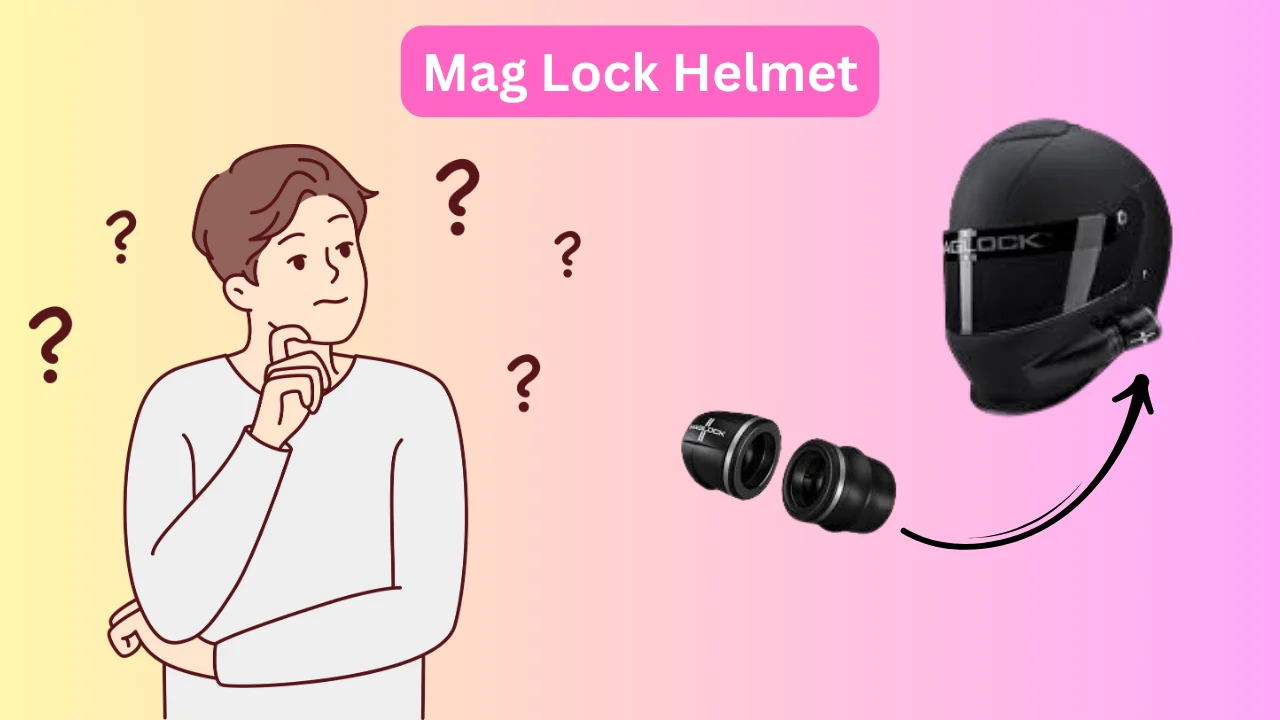Want to know does Maryland have a motorcycle helmet law? Yes, Maryland requires all motorcyclists and passengers to wear DOT-approved helmets for safety.
If you’re a motorcyclist in Maryland, understanding the state’s helmet law is crucial. Maryland has a universal helmet law that protects riders by mandating the use of DOT-compliant helmets.
As someone who has experienced the freedom of riding first-hand, I can tell you that safety always comes first. This blog will explore Maryland’s helmet laws, why they’re essential, the impact on safety, and key considerations for every rider on the road.
Quick fix
Maryland enforces a strict universal helmet law requiring all motorcyclists and passengers to wear DOT-approved helmets. The law, initially enacted in 1992, mandates safety gear for all riders, including those on scooters and mopeds, to reduce injury and fatality risks. Besides helmets, Maryland also recommends additional gear like gloves and boots for comprehensive safety. Following this law not only protects riders but also lowers healthcare costs and promotes public safety across Maryland’s roads.
History of Maryland’s Helmet Law
Maryland’s journey toward universal helmet requirements started back in 1992 when the state adopted its first comprehensive helmet law. Initially, this law faced significant opposition from some motorcyclists who felt it restricted their freedom.
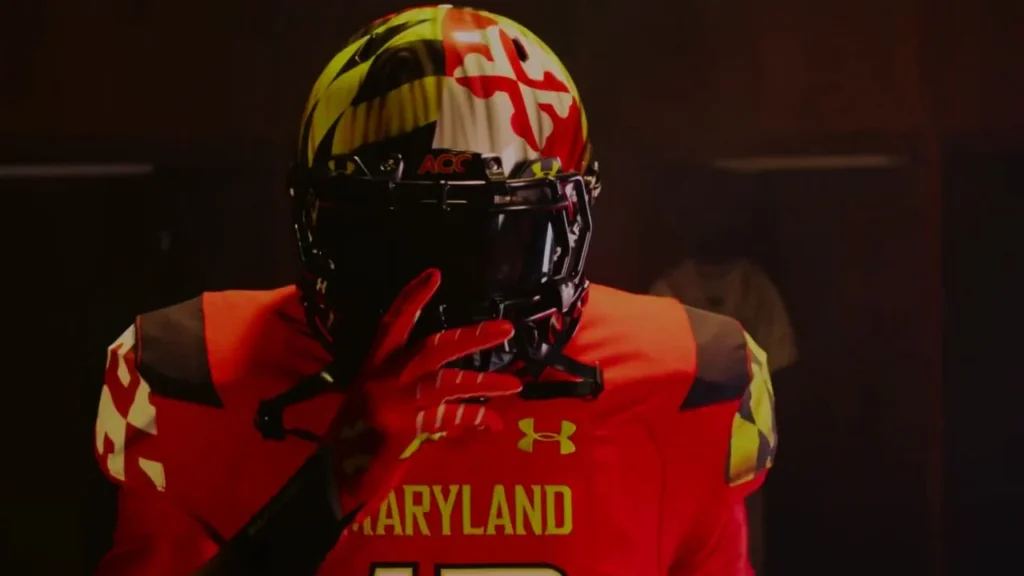
Over the years, studies and public health data reinforced the law’s importance. As helmet technology improved, the law was refined to specify that all helmets must meet U.S. Department of Transportation (DOT) standards. It ensures better protection and sets a minimum safety standard for all helmets used on Maryland roads.
Key Changes and Public Response
Since its inception, Maryland’s helmet law has evolved to include riders of scooters and mopeds, who must also comply with helmet standards if their vehicles meet certain speed or engine criteria.
Despite early resistance, a large portion of Maryland’s riding community now supports the law, especially in light of statistics proving helmets significantly reduce injury severity. According to CDC data, helmet laws in states like Maryland reduce fatality rates by about 20% compared to states without universal helmet laws.
What Does Maryland’s Universal Helmet Law Cover?
Maryland’s helmet law mandates that all motorcyclists, including passengers, wear DOT-approved helmets. These helmets are designed to absorb impact, protect against penetration, and stay securely on the rider’s head in case of an accident. Here’s a quick breakdown of who the law covers:

- All Motorcyclists and Passengers: Regardless of age or experience, every rider must wear a DOT-compliant helmet.
- Scooters and Mopeds: For scooters with engine displacements over 50cc or speeds over 30 mph, helmet use is required.
- Under-18 Riders: Regardless of engine size or speed, helmets are mandatory for riders under 18 on all two-wheeled motorized vehicles.
Why Are Helmet Laws Necessary?
Motorcycles provide minimal protection, so helmet laws are necessary to prevent severe head injuries.
According to the Insurance Institute for Highway Safety (IIHS), helmets reduce the risk of death by 37% for riders and 41% for passengers. Even with this compelling data, many riders underestimate helmets’ impact on safety.
Comparing Helmet Standards: DOT vs. Snell vs. ECE
Does Maryland have a motorcycle helmet law? Understanding helmet safety standards is vital for choosing the best helmet. DOT, Snell, and ECE are the main safety certifications:
- DOT (U.S. Department of Transportation): Required by law in Maryland, ensuring helmets meet minimum safety standards for impact and penetration resistance.
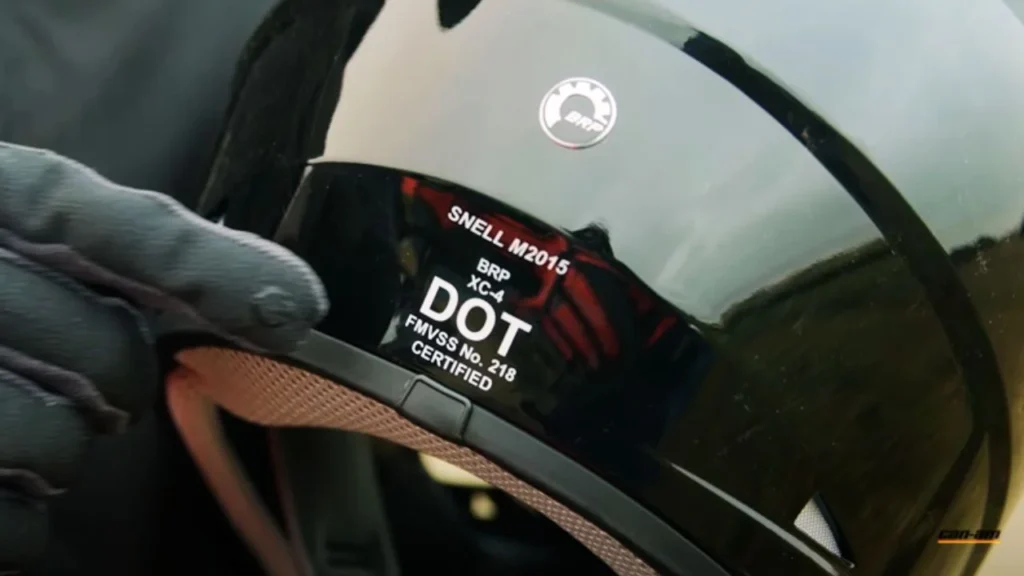
- Snell: A more rigorous testing standard, covering multiple impact points and extended testing for shell integrity.
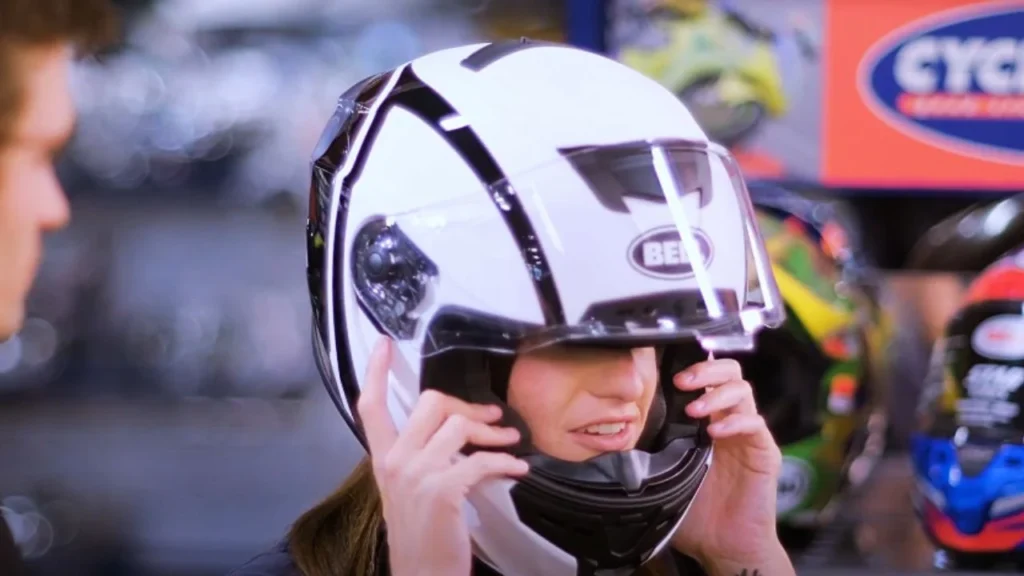
- ECE (Economic Commission for Europe): Standard widely accepted in Europe, known for its thorough testing on different surfaces and environments.
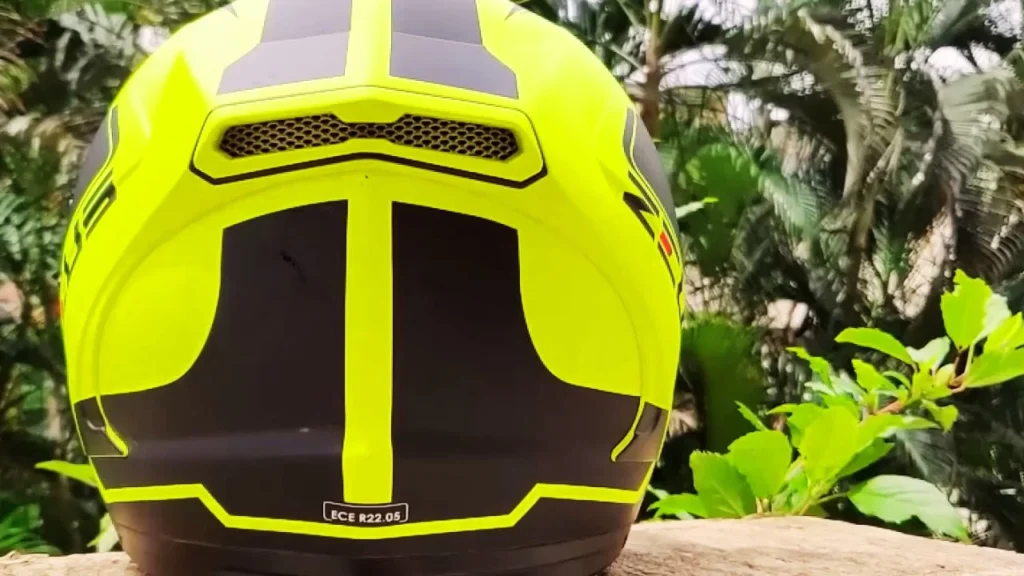
Choosing a Snell or ECE-rated helmet, in addition to DOT, can offer an extra layer of protection.
Impact of Helmet Use on Healthcare Costs and Public Safety
Beyond personal protection, helmet use has a measurable impact on public safety and healthcare costs. According to the CDC, universal helmet laws save states approximately $725 per registered motorcycle each year in healthcare costs. Helmet use reduces injury severity, which means fewer emergency services and less strain on hospital resources, allowing healthcare providers to allocate resources more effectively.

Economic and Personal Cost-Benefit Analysis of Helmet Use
The financial impact of not wearing a helmet extends far beyond fines. Here’s a comparison:
- Medical Expenses: Non-helmeted riders in accidents face higher medical costs, including potential brain surgery and long-term care.
- Legal Implications: Not wearing a helmet can complicate legal claims in other states. In Maryland, however, the law ensures that failure to wear a helmet isn’t used against the rider in injury claims.
- Helmet Investment: A DOT-compliant helmet can cost anywhere from $75 to $500, a fraction of potential medical expenses and legal fees if involved in a crash.
By investing in a high-quality helmet, riders save themselves and their communities from potential financial strain.
Additional Gear Required by Maryland Law
Aside from helmets, Maryland law mandates eye protection. Riders must use windshields, goggles, or face shields that meet FDA safety standards. Here are some additional gear recommendations:

- Full-Fingered Gloves: Essential for grip and hand protection.
- Long-Sleeved Jackets and Pants: Protect against road rash and weather conditions.
- Over-the-Ankle Boots: Shield feet and ankles from debris.
Each piece of gear enhances rider safety and comfort, particularly in various weather conditions.
How Helmet Law Affects Personal Injury Claims in Maryland
While Maryland’s helmet law is strict, the state’s contributory negligence rule is uniquely protective. Maryland law prohibits using the absence of a helmet as evidence of negligence in personal injury claims. This means if you’re injured in a motorcycle accident due to another driver’s negligence, failing to wear a helmet will not reduce your damages. This legal detail protects motorcyclists’ rights to compensation.
Real-Life Case Studies: Maryland Motorcyclists and Helmet Use
Real-life cases illustrate helmet use’s importance. In 2019, a Baltimore rider survived a high-speed crash because he was wearing a DOT-approved helmet. Another case in 2021 involved a moped rider who sustained a traumatic brain injury after a crash without a helmet. These cases highlight the significant differences in outcomes when riders choose to wear helmets.
Community Impact: How Helmets Benefit Everyone
Helmet use also positively impacts the wider community by reducing accident-related costs and fatalities. According to data from the National Safety Council, universal helmet laws contribute to a 20-25% reduction in state motorcyclist fatalities. This translates into fewer fatalities and safer roads for everyone, motorcyclists and drivers alike.
Insurance Implications for Maryland Riders
Helmet use impacts insurance premiums and claims in Maryland. While insurers cannot penalize riders for non-use, wearing a helmet can benefit riders by demonstrating safe practices. Insurance providers often look favorably on riders with a history of compliance with state laws, potentially impacting policy costs and claim processes.
Advanced Rider Training and Helmet Law Compliance
In Maryland, the Motor Vehicle Administration (MVA) offers a Motorcycle Safety Program that provides riders with essential skills and legal insights, including helmet laws. These programs are particularly beneficial for new riders and emphasize the importance of proper gear. Completing advanced training can also improve rider confidence and lead to safer riding habits.
Debunking Helmet Law Myths
Despite strong evidence supporting helmet use, myths persist. Let’s address these directly:
- “Helmets Impair Vision”: DOT standards ensure helmets allow at least 105° of peripheral vision.
- “Helmets Cause Neck Injuries”: Modern helmets are designed with weight distribution in mind, reducing any strain on the neck.
- “Helmets Aren’t Comfortable”: Proper fit is key, and most helmets are lightweight and comfortable for long rides.
Safety Guide for Maryland Motorcyclists
Following Maryland’s helmet law is a great first step, but here are additional safety practices to keep every ride safe and enjoyable:
- Wear DOT-Approved Gear: Helmets, eye protection, gloves, jackets, and boots offer essential protection. Make sure your helmet has a clear DOT label for compliance.
- Stay Visible: Bright-colored clothing and reflective tape on your helmet or bike increase visibility to other drivers, especially at night.
- Ride Defensively: Assume that other drivers may not see you. Maintain a safe distance and avoid lingering in other vehicles’ blind spots.
- Check Weather Conditions: Wet or icy roads increase crash risk. Avoid riding in extreme conditions and be extra cautious in low visibility.
- Use Your Headlights: Maryland law requires motorcyclists to have headlights on during the day for visibility. This simple action makes you more noticeable.
- Inspect Your Motorcycle Regularly: Check brakes, tires, lights, and fluid levels before each ride to ensure your bike is road-ready and safe.
- Know Maryland’s Road Rules for Motorcycles: Avoid lane-splitting and use designated motorcycle lanes when available to stay compliant and safe.
- Take a Motorcycle Safety Course: Maryland’s Motorcycle Safety Program offers training on safe riding practices, proper gear use, and accident prevention.
By following these safety tips and complying with Maryland’s helmet law, you can greatly reduce your risk on the road.
Conclusion
So, does Maryland have a motorcycle helmet law? Absolutely, and for good reason. Helmets don’t just protect riders; they create a safer environment for all road users. I can tell you from experience that the peace of mind that comes with wearing a DOT-approved helmet far outweighs any inconvenience.
By following Maryland’s helmet laws and embracing proper gear, we all contribute to safer roads and protect the ones we love. Whether you’re a new or seasoned rider, stay safe and make every ride a responsible one.
Learn complete guide on other motorcycle helmet laws like
does tennessee have a helmet law for motorcycles
is it legal to ride a motorcycle without a helmet
can i take motorcycle helmet on plane
can you ride a motorcycle without a helmet in florida.
FAQs
1. Do all riders in Maryland have to wear a helmet?
Yes, Maryland requires all motorcyclists and their passengers to wear DOT-approved helmets.
2. Are out-of-state riders required to wear helmets in Maryland?
Yes, all riders in Maryland, including out-of-state visitors, must wear helmets on public roads.
3. What are DOT standards for motorcycle helmets?
DOT standards ensure that helmets meet minimum safety criteria for impact absorption, penetration resistance, and retention.
4. Can I use a modular helmet in Maryland?
Yes, modular helmets are DOT-approved and legal in Maryland, though full-face helmets provide the most coverage.
5. Are there any fines for not wearing a helmet in Maryland?
Yes, riding without a helmet can result in fines and penalties, with amounts varying by jurisdiction.





